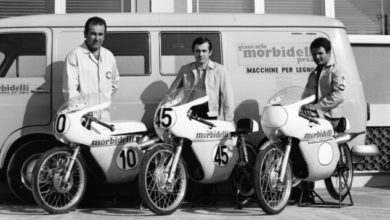Effective state franchise laws produce an equality of commitment – May 15, 2006
I have had a number of calls and e-mails asking if I was going to have a response to the Motorcycle Industry Council’s comments on a previous column. The OEM’s perspective will never be the same as that of the retailer, so if I am to write a “dealer advocate” column, I will expect that they take exception to much of what I write, so do not normally look for a retort.
However in one letter, Kathy Van Kleeck, MIC senior vice president, stated that they support state franchise protection when it is deemed to be “reasonable.” That is worth a response. An OEM wants unrestricted access to the marketplace; the dealer wants protection for the investment and personal guarantees it takes to represent a manufacturer. It is doubtful that there will ever be an agreement on what is “reasonable.”
So why does the industry need franchise protection laws? It comes down to an equality of commitment. To operate a dealership, the dealer has to make a total commitment; we need the same from the supplier. Nothing in any state legislation takes away the OEM’s absolute right to decide who initially is to be awarded the franchise to sell the product in a given market area. The OEM can make any demands it deems appropriate. The prospective dealer then has to decide if the commitments required are justified by the potential return. Having made such a commitment, isn’t it reasonable that the dealer receive a commitment in return?
Is it reasonable that a dealer has only a unilaterally imposed set of conditions, subject to change, at the sole discretion of the OEM? Most state franchise laws, at least the good ones, require the OEM file the terms and conditions of its dealer agreement with the state. If the dealer agreement is to be changed, the state and all of the dealers have to be notified and the dealers, collectively or individually, given the opportunity to protest. It is absolutely absurd to suggest that changes in a dealer agreement can be negotiated by the parties without an effective franchise law because the dealer by himself clearly has no negotiating position.
When a powersports retailer takes on a new product line, he/she makes a commitment far beyond the providing of shelf space. To survive, they must continually make decisions on what is in the best interest of the dealership. What to stock and when to stock it is a decision that has to be made by the party who has to retail the product.
When product is sold, at wholesale or retail, it is not immoral or illegal to put forth your best effort to sell the product. OEMs and their representatives should do everything they can to get a retailer to prioritize the sale of their product and induce them to stock sufficient quantities. It’s called salesmanship. Select the right dealers, and work closely with them in the development of that marketplace.
A retailer must adhere to established standards and laws, including how product can be advertised and sold. Can you imagine what would happen if a dealer made a practice of threatening his/her potential customer who decided not to buy the product? Such practices of compelling a sale should not happen to the consumer or to a dealer, who is under economic duress to buy product from the OEM. It is immoral for a manufacturer to resort to any form of economic duress, no matter how “reasonable” they think it is. All such practices need to be illegal.
Market area
The other equality of commitment issue is the establishment of a reasonable market area. The best state for this is Texas. Urban dealers receive state-mandated exclusivity for a 15-mile radius. Criteria for rural dealers varies by the population of the county. The net effect has been that dealerships in Texas are worth more and the dealer network is strong.
I have noted many times over the years that dealers and OEMs in Texas seem to have a very good working relationship. Mike Marks, executive director of the Texas state dealer association and current chairman of the National Council, takes pride in the good working relationship he has with the MIC.
Motorcycle and ATV sales in Texas are strong, and have often stayed so when the rest of the country experienced a drop in sales. The strong franchise law has made the dealers strong. When you are only allowed to have one dealer in a marketplace, the OEM is compelled to work closely with the only dealer they have. Sales have not suffered and the public is better served by the more substantial dealerships you find in Texas.
The OEMs have consistently fought state associations that have tried to have Texas’ market area protection for their dealers, which in spite of the obvious success, the OEMs find unreasonable.
Cheers, Ed.
The opinions expressed in this column are not necessarily those of the publisher.




